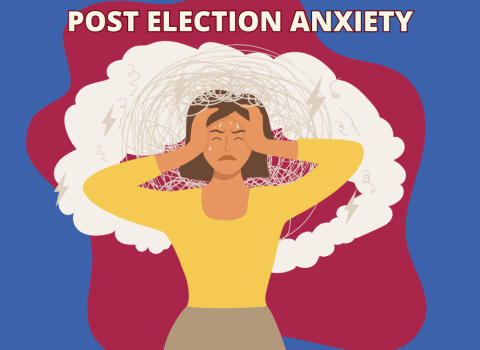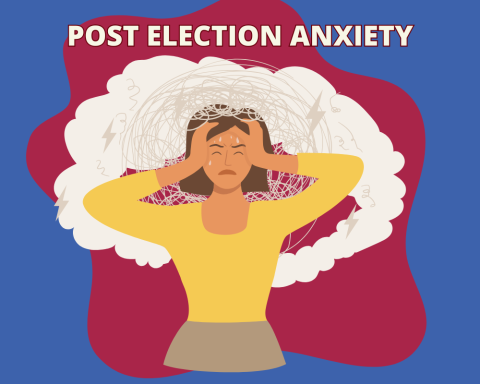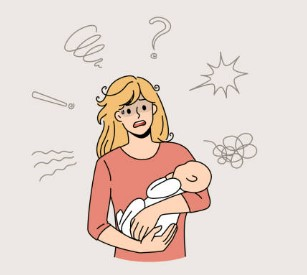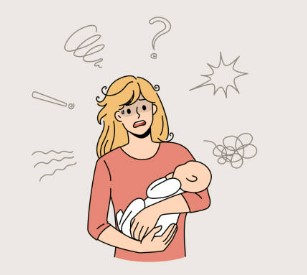
Read Personal Stories
I am a world champion of trampoline gymnastics, and I have suffered from anxiety for many years. Having anxiety is like having diabetes or asthma: They are all illnesses. But in 20 years as a trampolinist, I have yet to see someone yelled at for having diabetes or asthma.
a world champion of trampoline gymnastics, and I have suffered from anxiety for many years. Having anxiety is like having diabetes or asthma: They are all illnesses. But in 20 years as a trampolinist, I have yet to see someone yelled at for having diabetes or asthma.
 There was a time when basic things—like driving, climbing a flight of stairs, taking a shower, or going through the checkout line at the grocery store—landed me somewhere between mortal unease and full-throttle terror. It all began with a single panic attack that seemed to strike out of the blue. Mistaking it for a heart attack, I called an ambulance, but I quickly learned that there is no ambulance for an alarm of the mind.
There was a time when basic things—like driving, climbing a flight of stairs, taking a shower, or going through the checkout line at the grocery store—landed me somewhere between mortal unease and full-throttle terror. It all began with a single panic attack that seemed to strike out of the blue. Mistaking it for a heart attack, I called an ambulance, but I quickly learned that there is no ambulance for an alarm of the mind.
 My earliest childhood memories are of constant fear. A skinny kid with crooked teeth, somewhat shy and reserved with social anxiety, I was an easy target for bullies, which made my issues even more difficult to handle. I never spoke to anyone about my feelings because I felt they were my fault.
My earliest childhood memories are of constant fear. A skinny kid with crooked teeth, somewhat shy and reserved with social anxiety, I was an easy target for bullies, which made my issues even more difficult to handle. I never spoke to anyone about my feelings because I felt they were my fault.
If anyone had told me several years ago that everything would get better, I would have nodded while screaming disbelief inside my head. I thought things simply could not get better, that I'd be forever feel imprisoned in a dark room.
had told me several years ago that everything would get better, I would have nodded while screaming disbelief inside my head. I thought things simply could not get better, that I'd be forever feel imprisoned in a dark room.
 Childhood anxiety, even severe and chronic, doesn’t necessarily stand in the way of success and achievement. But caring parents will do anything to help relieve their children of misery. Scott Stossel, the editor of The Atlantic magazine, tells his story of struggling, coping, and living a very productive life.
Childhood anxiety, even severe and chronic, doesn’t necessarily stand in the way of success and achievement. But caring parents will do anything to help relieve their children of misery. Scott Stossel, the editor of The Atlantic magazine, tells his story of struggling, coping, and living a very productive life.
Share Your Story and Your Voice.
Help #breakthestigma Around Mental Health.
Read Stories From People Just Like You.
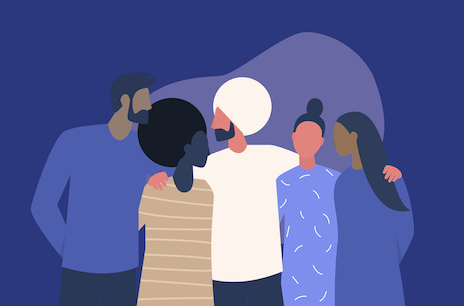
We invite you to explore personal stories submitted from ADAA's community to learn how people living with an anxiety disorder, OCD, PTSD, bipolar disorder, depression or a co-occurring disorder have struggled, coped, and triumphed.
Do you have a story about your mental health journey? Your voice and your story can help transform the lives of many, help decrease stigma, and make one feel less alone.
We welcome written stories and short 2-3 minute videos, or a 1-2 minute recording, that we will share on the ADAA website, through our Triumph e-newsletter, and across our social media platforms.
In a story of 500 -750 words (or a 2-3 minute video), please describe your mental health journey and how it has affected your life. Please provide a brief title and focus on the therapy or other treatments that have helped you manage or overcome your illness. Please include how ADAA's website or resources have helped you. In order to publish you story on our website and to share it on our social media platforms, we require that you use your real name and include a photo.
Please note that we do not accept advertorials (these stories should not include any call-outs for personal websites or publications or sell any products). We reserve the right to reject any story that we do not feel is appropriate to share.





 Nothing could have been worse for me than being a teenager in high school — until I became a teenager in high school with depression.
Nothing could have been worse for me than being a teenager in high school — until I became a teenager in high school with depression. 
